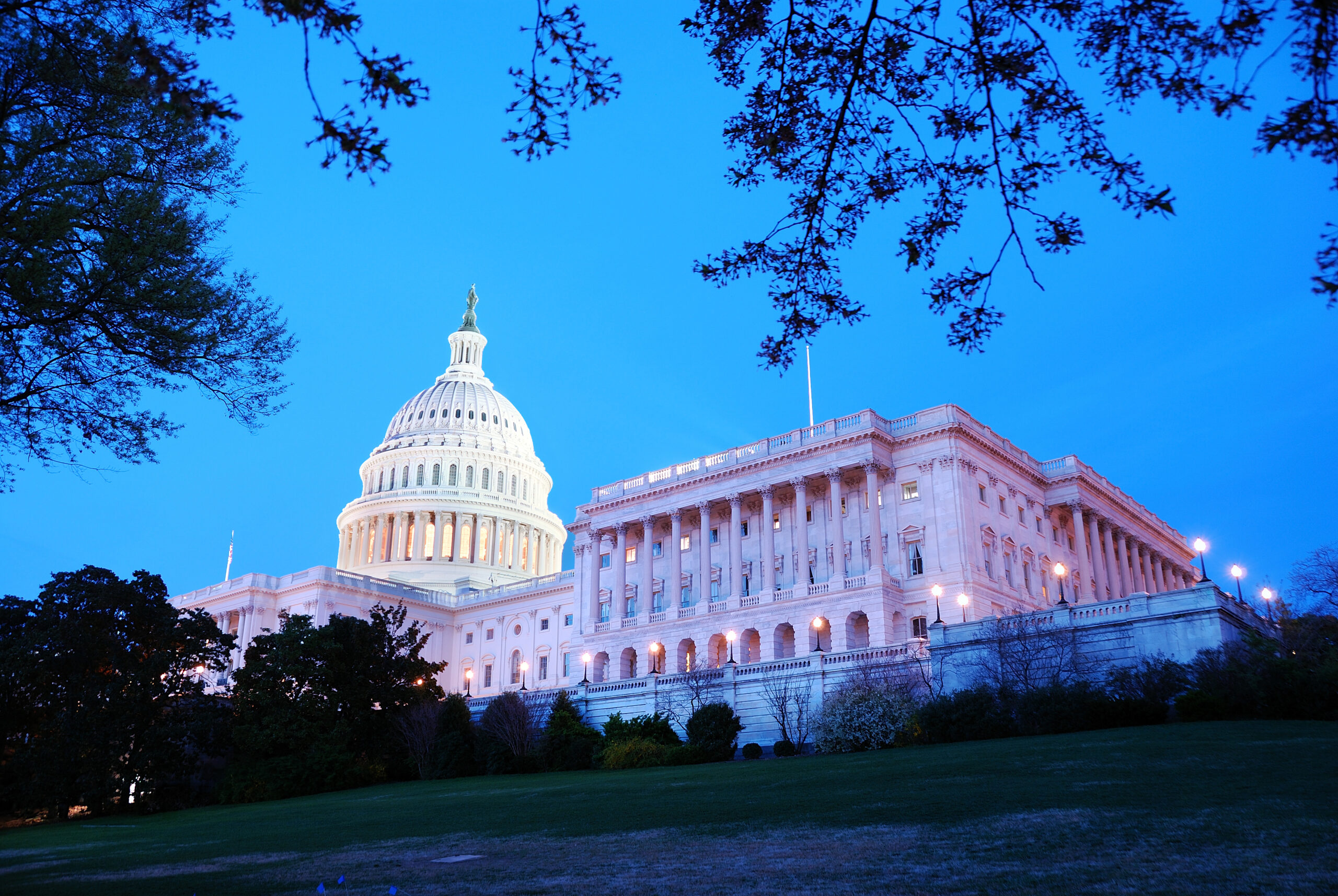Medicare Cuts
Legislative Update:
Budget Planning for the New Fiscal Year and Onwards
05/22 Update
In a narrow vote of 215 for and 214 against, the House of Representatives has passed the bill devised by House Republicans to make serious budgetary changes, including cuts to Medicaid. Coined as the “Big Beautiful Bill,” this was the latest version of House Republicans’ budget reconciliation plans.
The narrowness of the vote is due in part to major pushbacks from various republican representatives, who have generally opposed cuts to Medicaid. However, while two republicans held out in voting against the bill, it seems enough were convinced otherwise for the bill to be passed. It has been reported that amongst negotiations between House Republicans to gain their support for the bill was most notably a desire to revise legislation around work requirements for Medicaid. The process surrounding this bill has been lengthy, and will likely continue to encounter obstacles as it reaches the Senate where pushback is expected.
NHCOA reiterates our belief in the importance of programs like Medicaid, Medicare, and SNAP for their impactful support of our most vulnerable populations. Cuts to these programs stand to have devastating ramifications for those whose well-being is reliant on such federal support, and especially for those who continue to struggle even with the support of such instrumental programs.
We encourage any and all community members and constituents to call and write to their representatives in the Senate to urge the protection of Medicaid against these potential cuts.
For information on contacting your representatives, find the links at the bottom of this page.
04/10 Update
The House of Representatives has recently passed a new version of the budget reconciliation plan for the 2025 fiscal year and onwards, which differs widely from the version passed in February. The stark difference however, is mostly due to its vague nature, lacking any concrete instructions as to how these budgetary goals will be met across committees and their respective oversight.
Passed on April 10th, the new version differs most obviously in reference to spending cuts. As detailed in our previous updates, the House’s older version laid out intentions to cut federal spending by about $2 trillion, including a potentially devastating portion being levied to the Committee on Energy and Commerce, which oversees Medicaid and Medicare, in the amount of $880 billion in spending cuts. Whereas this new version has severely backtracked from its total $2 trillion to $4 billion, with no details as to where these cuts would be made.

This development may seem positive or hopeful for those who believe cuts to Medicaid and Medicare would be a detriment to the country’s health, as it would affect the healthcare of millions. It follows several Republican representatives voicing worry over the impact on their states, were Medicaid to receive such amassive cuts. However, the lack of details on how this $4 billion in cuts will be achieved should not be treated as an assurance that these programs will be left alone, as some leaders in congress continue to voice an intention for cuts to said programs.
In fact, the new bill cites a belief that “Medicaid continues to grow at an unsustainable rate,” and suggests that further legislation be made to create further work requirements to be enrolled in Medicaid.
The bill does note the importance of both Medicare and Medicaid, and implies a general intention to preserve and improve them, however this comes from a perspective that prioritizes finance and budgetary revision.
Following the passing of this bill, members of Congress began a two-week recess in mid-April. Upon returning from their recess, congressional committees are to begin mark-ups of both bills passed by the Senate and House respectively. They have set a deadline of May 9th to complete this work.
In the meantime, NHCOA encourages our community and constituents to call and write to their representatives and make clear their support of protecting funding to programs like Medicaid, Medicare and SNAP.
02/15 Update
On the night of Tuesday, February 25th, the House of Representatives voted to approve the Budget Reconciliation Bill put forth by House Republicans. The bill was approved with a narrow margin by a vote of 217 to 215.
In order for any budget resolution to proceed, the Senate and House must now agree upon an identical resolution to adopt. On February 20th, the Senate approved its own budget resolution that differs vastly compared to that of the House. It is as follows:
Recommended Reconciliation for the House of Representatives:
-
Committee on Agriculture: Reduce by $1 billion
-
Committee on Armed Services: Increase by $150 billion
-
Committee on Education and Workforce: Reduce by $1 billion
-
Committee on Energy and Commerce: Reduce by $1 billion
-
Committee on Natural Resources: Reduce by $1 billion
-
Committee on Homeland Security: Increase by $175 billion
-
Committee on the Judiciary: Increase by $175 billion
-
Committee on Transportation and Infrastructure: Increase by $20 billion
Recommended Reconciliation for the Senate:
-
Committee on Agriculture, Nutrition, and Forestry: Reduce by $1 billion
-
Committee on Armed Services: Increase by $150 billion
-
Committee on Commerce, Science, and Transportation: Increase by $20 billion
-
Committee on Energy and Natural Resources: Reduce by $1 billion
-
Committee on Environment and Public Works: Increase by $1 billion
-
Committee on Finance: Reduce by $1 billion
-
Committee on Health, Education, Labor, and Pensions: Reduce by $1 billion
-
Committee on Homeland Security and Governmental Affairs: Increase by $175 billion
-
Committee on the Judiciary: Increase by $175 billion
The bill created within and approved by the Senate notably makes recommendations for the committees within the House of Representatives as well as those within the Senate. Compared to the bill created within and approved by the House, the Senate’s bill excludes the Committees on Oversight and Government Reform, on Financial Services, and on Ways and Means. What’s most striking about the differing bills is obviously the severity of the reductions recommended by the House. The Senate’s resolution recommends far more modest reductions, and also notably recommends increased spending for laws under the jurisdiction of the Committee on Transportation and Infrastructure.
Moving forward, all Congressional Committees will work to create bills in response to the instructions laid out in these budget resolutions. These committees will submit their bills to the Budget Committee, who will combine all these bills into one large bill, which must then be agreed upon by both the Senate and the House of Representatives.
Given that the proposals from either chamber of Congress differ so much, there is likely to be a fair number of disputes between the chambers, which will have to be resolved in order for an identical budget reconciliation to be adopted.
You still have time to make your voice heard! Call and write to your representatives, urging them to protect funding for programs like Medicaid, Medicare, and SNAP.
Help ensure that over 70 million Americans don’t lose the healthcare they need, including millions of low-income older adults!
What is happening?
On February 12th, 2025, Republicans within the House of Representatives released their budget resolution for fiscal year 2025. The proposal summarizes the expectations for how much money may be spent in given areas of legislature.
Within the House of Representatives there are committees charged with overseeing laws that fall under a given umbrella. In this context, ‘laws’ do not simply refer to rules enforced on the public, but the policies and general legislature that impact programs and services across the federal government. The proposal from House Republicans mostly contains budget cuts; seven out of eleven committees are recommended to decrease their spending in fiscal year 2025.
These committees, along with the recommended changes to their spending, are as follows:

-
Committee on Agriculture (Reduce by $230 billion)
-
Committee on Education and Work Force (Reduce by $330 billion)
-
Committee on Energy and Commerce (Reduce by $880 billion)
-
Committee on Financial Services (Reduce by $1 billion)
-
Committee on Natural Resources (Reduce by $1 billion)
-
Committee on Oversight and Government Reform (Reduce by $50 billion)
-
Committee on Transportation and Infrastructure (Reduce by $10 billion)
-
Committee on Armed Services (Increase by $100 billion)
-
Committee on Homeland Security (Increase by $90 billion)
-
Committee on the Judiciary (Increase by $110 billion)
-
Committee on Ways and Means (Increase by 4.5 trillion)
The amounts listed next to each committee reflect the amount of increase or reduction to be achieved over the next 10 years, through 2034. However, we can still appreciate the scale of reduction as an indicator of what that will mean for the country in the short term.
Most notably, House Republicans are recommending that the Committee on Energy and Commerce reduce their spending by the largest amount ($880 billion over the next ten years). NHCOA, as well as any organization with the field of aging, is particularly concerned with cuts to the budget for laws under this jurisdiction. With this recommendation will come devastating cuts to the budgets for crucial programs like Medicaid and SNAP.
How it affects us?
Medicaid provides health coverage to over 7 million low-income seniors, who are also enrolled in Medicare. It also provides coverage for almost 5 million people with disabilities. Such severe cuts to Medicaid will end what has been a genuine lifeline for so many older adults across the country. Without it, these older adults will lose the home-based and nursing facility care that they otherwise cannot afford out of pocket.
SNAP (Supplemental Nutrition Assistance Program), is an incredibly important program that allows over 40 million Americans to afford groceries, including older adults. SNAP is renowned for its effectiveness in combatting hunger, and laying major cuts to it would leave millions hungry and much less nourished.
The recommendations seen in this proposal will result in the suffering of millions across the country. The National Hispanic Council on Aging urges our community and constituents to consider our older adults. We urge you to consider the retired seniors, who live on a fixed income from their social security and can scarcely afford their rent or groceries, let alone the treatments and medications that they need to live in good health.
What can we do?
